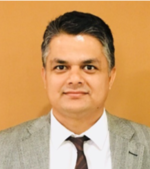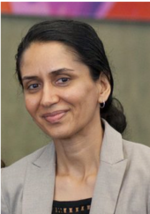Difference between revisions of "Mini-Grid Webinar Series 2019 - 2nd Webinar"
***** (***** | *****) m |
***** (***** | *****) m |
||
| Line 28: | Line 28: | ||
<p style="text-align: center">'''<span style="color: rgb(72,177,69); font-size: 15px">Mini-Grid Financing: Enabling the Role of Local Banks</span>'''</p><p style="text-align: center"><span style="color: rgb(72,177,69); font-size: 15px">'''Webinar Recording'''</span><br/></p> | <p style="text-align: center">'''<span style="color: rgb(72,177,69); font-size: 15px">Mini-Grid Financing: Enabling the Role of Local Banks</span>'''</p><p style="text-align: center"><span style="color: rgb(72,177,69); font-size: 15px">'''Webinar Recording'''</span><br/></p> | ||
| − | {{#widget:YouTube|id= | + | {{#widget:YouTube|id=RonUwdQ84Wo|height=300|width=600}} |
Revision as of 10:02, 18 September 2019
►Link to Mini-Grid Webinar Series 2017
|
Mini-Grids Webinar Series 2019 |
The Hydro Empowerment Network (HPNET) is a south-south, knowledge exchange and advocacy platform to advance small-scale (<1MW) hydropower. HPNET, in partnership with the WISIONS of Sustainability Initiative and Energypedia, is conducting a 4-part, quarterly webinar series on mini-grids.
Renewable energy mini-grids are a cost-effective and reliable solution for energy access. Within the technologies available for mini-grids, micro and mini hydropower (MHP)1 has added advantages. It's techno-economic characteristics, such lower levelized cost of electricity, per kilowatt cost, and no need for battery storage, make it economically viable for grid interconnection and productive end use applications. read more
Because MHP hardware can be manufactured locally and maintained by local actors, MHP development imparts local skills and jobs, which can evolve into local MHP enterprises. In addition, MHP strengthens catchment area and watershed protection, in turn increasing the climate resilience of vulnerable communities in hilly regions.
The number of hydro mini-grids in rural areas of Asia, Africa, and Latin America far exceed other types of mini-grids. As a proven technology with an extensive track record, micro and mini hydropower is the focus in this mini-grid webinar series. The objective of the series is to facilitate exchange among diverse actors advancing small-scale hydro, and promote approaches that lead to long-term success and optimal local benefits. Each of the four webinars will respectively provide insight on MHP reliability, sustainability, financing, and planning for scalability.
[1] In this context, micro hydropower refers to <100kW, and mini hydropower refers to 100 - 1000 kW (or 1MW).
Mini-Grid Financing: Enabling the Role of Local Banks
Webinar Recording
While the financial viability and socio-economic impact aspects of hydro mini-grids make them conducive to soft loans, impact investment and other types of debt/equity, access to financing is a severe challenge for local, small-scale hydro practitioners across the global south. International financiers find it difficult to lend to projects located in very remote areas, which is often the case with local micro and mini hydropower. Therefore, local practitioners increasingly seek financing from local banks and other local financiers, who tend to be more accessible to local practitioners and amenable for dialogue that helps to clarify the local context and risks. Local banks that lend to rural areas can particularly be more open to lending to mini-grids for energy access.
However, in most cases local banks have little or no experience in lending to mini-grids. They lack basic skills for project appraisal and servicing loans. In addition, most countries lack banking regulations that would allow the loan tenures required for mini-grid pay-back periods, e.g. 7-10 years. Collateral and interest rates are also critical obstacles for enabling local bank financing. In some cases local banks do not have adequate capital funds for lending. On the other hand, local developers also need skills building in developing the required documentation and data required to access local bank loans.
In spite of these challenges, experience in South and Southeast Asia shows that local banks can be empowered to play a critical role in accelerating sustainable hydro mini-grids by lending to local practitioners.
This webinar features banks and financing specialists from South and Southeast Asia who have enabled local banks and local developers in the region to make financing available for small-scale hydro mini-grids. Using specific examples, the speakers present: read more
- Why and how local banks are critical to replication of sustainable hydro mini-grids
- Incentives for local banks in lending to hydro mini-grids and local developers
- How local banks can build internal capacity to lend to mini-grids
- How local developers can develop the necessary skills to access local bank financing
- How banking regulatory challenges can be overcome
- Roles of government and donors help to accelerate the process of enabling local bank financing.
Presentations are followed by a Q/A session.
Download the Presentations
Speakers
 |
DINESH DULAL |
 |
KAPILA SUBASINGHE |
 |
MARGARITA MANZO |
Moderator | |

|
RANISHA BASNET |
Thematic Discussant
 |
DIPTI VAGHELA |
Organizers
|
The Hydro Empowerment Network (HPNET) is a knowledge exchange and advocacy platform for micro/mini hydro practitioners in south and southeast Asia, focusing on policy, technology, and socio-environment solutions for long-term sustainability. Core support for HPNET comes from the WISIONS initiative at the Wuppertal Institute for Climate, Environment and Energy. | |
|
WISIONS of Sustainability initiative's main objective is to make clean energy a default solution for basic energy needs in developing regions, by helping local partners to identify successes and bring them to scale through regional networks, marketing and demonstration. | |
| Energypedia UG is a non-profit organization that runs and maintains the wiki-based platform, www.energypedia.info. Energypedia.info is an online platform for collaborative knowledge exchange on renewable energy, energy efficiency and energy access in the context of development cooperation. |






















